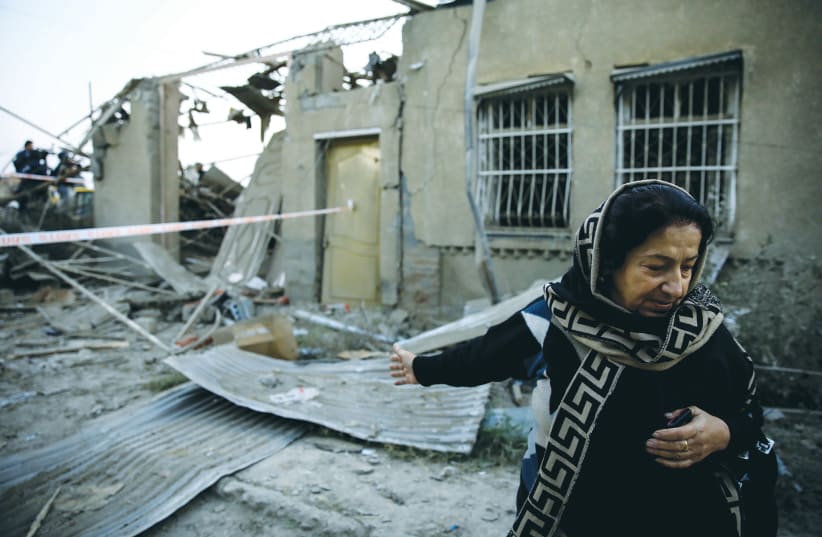Azeri President Ilham Aliyev said in a televised address that he wanted to resolve the conflict "by political and military means" after both sides accused each other of breaking a truce agreed hours earlier in Washington.
Speaking live on Facebook later on Monday, Armenian Prime Minister Nikol Pashinyan said he did not believe Azerbaijan was interested in a peaceful resolution to the conflict. "The Armenian people are ready for mutual concessions, even painful ones, but not for the capitulation of Karabakh," he said.
The latest fighting in Nagorno-Karabakh, a mountainous part of Azerbaijan populated and controlled by ethnic Armenians, erupted on September 27 and is the worst in the South Caucasus since the 1990s. Two Russian-brokered ceasefires have failed to hold.
World powers want to prevent a wider war that might draw in Turkey, which voices strong support for Azerbaijan, and Russia, which has a defense pact with Armenia. The conflict, close to pipelines that carry Azeri oil and gas to international markets, has also strained relations between Ankara and its NATO allies.
A third ceasefire since October 10 was agreed on Sunday after separate talks in Washington between US Secretary of State Mike Pompeo and the foreign ministers of Armenia and Azerbaijan.
Within minutes of its coming into force at 8 a.m. (0400 GMT), Azerbaijan's defense ministry said in a statement that Armenian forces had shelled villages in the Terter and Lachin regions, located at opposite ends of the conflict zone.
Authorities in Nagorno-Karabakh denied this.
Arayik Harutyunyan, president of the ethnic Armenian enclave, said in a statement that Azeri forces resumed attacks along the entire line of contact in the second half of the day.
Pompeo is now in India on the first leg of a five-day Asian trip.
The OSCE Minsk Group, formed to mediate the conflict and led by France, Russia and the United States, also participated in Sunday's talks and is scheduled to meet the Armenian and Azeri foreign ministers again in Geneva on October 29.
'HOW LONG CAN YOU NEGOTIATE?'
About 30,000 people were killed in the 1991-94 war over Nagorno-Karabakh, which Armenians regard as part of their historic homeland and Azeris consider to be illegally occupied land that must be returned to their control.
In Monday's address, Aliyev criticized the OSCE Minsk Group.
"For almost 30 years, the Minsk Group co-chairs have tried to reconcile Azerbaijan with the process of freezing the conflict, but we have created a new reality," he said. "We are fed up with these negotiations. How long can you negotiate?"
The office of Artak Beglaryan, Nagorno-Karabakh's human rights ombudsman, said 90,000 residents, or 60% of the enclave's population, had fled their homes for locations elsewhere in Nagorno-Karabakh or Armenia.
The ombudsman's office said one civilian was killed and two wounded in a missile strike on the village of Avetaranots on Monday. This was denied by Azerbaijan's defense ministry.
In all, 41 civilians in Nagorno-Karabakh and 974 servicemen had been killed, the ombudsman's office said. Azerbaijan says that 65 Azeri civilians have been killed and 297 wounded. It has not disclosed its military casualties.
